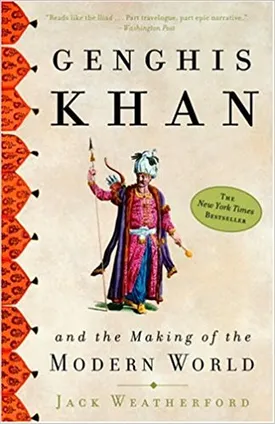Jack Weatherford
Jack Weatherford is an anthropologist and one of the most influential modern-day authors. He is best known for his ground-breaking work on the history of the Mongols, but he has also written extensively on the political, cultural, and economic history of Native Americans, Russia, and Tibet. He has also famously written about globalisation and its effects on Third World countries.
Weatherford was born in Chicago and raised in the suburbs before earning his undergraduate degree in sociology from Northern Illinois University. He then went on to earn a master’s degree in anthropology from Tulane University and a Ph.D. in anthropology from Northwestern University. It was during his Ph.D. program that he wrote his first book, Indian Givers: How the Indians of the Americas Transformed the World. It was an immediate success, and it is still considered to be one of his most important works.
In this book, Weatherford explores how the native people of the Americas profoundly shaped the development of the modern world—from contributing to the development of new crops, to influencing language, to founding entire political systems. He posits that the true legacy of the native people of the Americas was far greater than the often-taught version of victimhood and conquest.
One of Weatherford’s most famous works—and the one for which he is best known—is his 1994 book Genghis Khan and the Making of the Modern World. This book took ten years of research and includes interviews with contemporary scholars and diplomats. It explores the Mongol Empire, which during the 1200s and 1300s spanned from Mongolia to modern-day Hungary, and was forged and maintained through the leadership of Genghis Khan.
This book, which is widely recognized as one of the best books written on the subject of Genghis Khan, explores how the empire changed economics, warfare, and politics forever. He also offers fresh and fascinating insights into the personal characteristics that enabled Genghis Khan to unite many vastly diverse and disparate people under one system of governing.
Throughout his career, Weatherford has explored how the past relates to the contemporary world, particularly how the influence of specific societies can still be seen in the present day. This is particularly evident in his books on Russia and Tibet, which examine a culture’s impact on and intersection with the modern global economy and political systems.
He has emphasized the importance of currency in the modern economy, particularly in Russia and its former Soviet states. His books The History of Money and The History of Money from Ancient Times to the Present Day provide a comprehensive overview of the development and history of money, both nationally and internationally.
Weatherford is also the author of numerous other books, including 12 books that focus on Native American cultures and history. His books on Native American cultures include Indian Giver Revisited, The History of Native Americans and the Environment, and The History of Native Americans in the Great Plains.
He is also the author of books about environmentalism and globalisation, such as Consumptionomics: The New Rules of Techonomics, Globalization and Democracy in the Age of Terrorism and Social Movements, and Native Roots: How the Indians Enriched America.
Jack Weatherford has changed the way readers think about the past and its impact on the present. His books have provided readers with a new perspective on complex topics and have been widely regarded for their provocative and thought-provoking content. He continues to write books about the history and culture of various cultures and how they influence the modern world.

